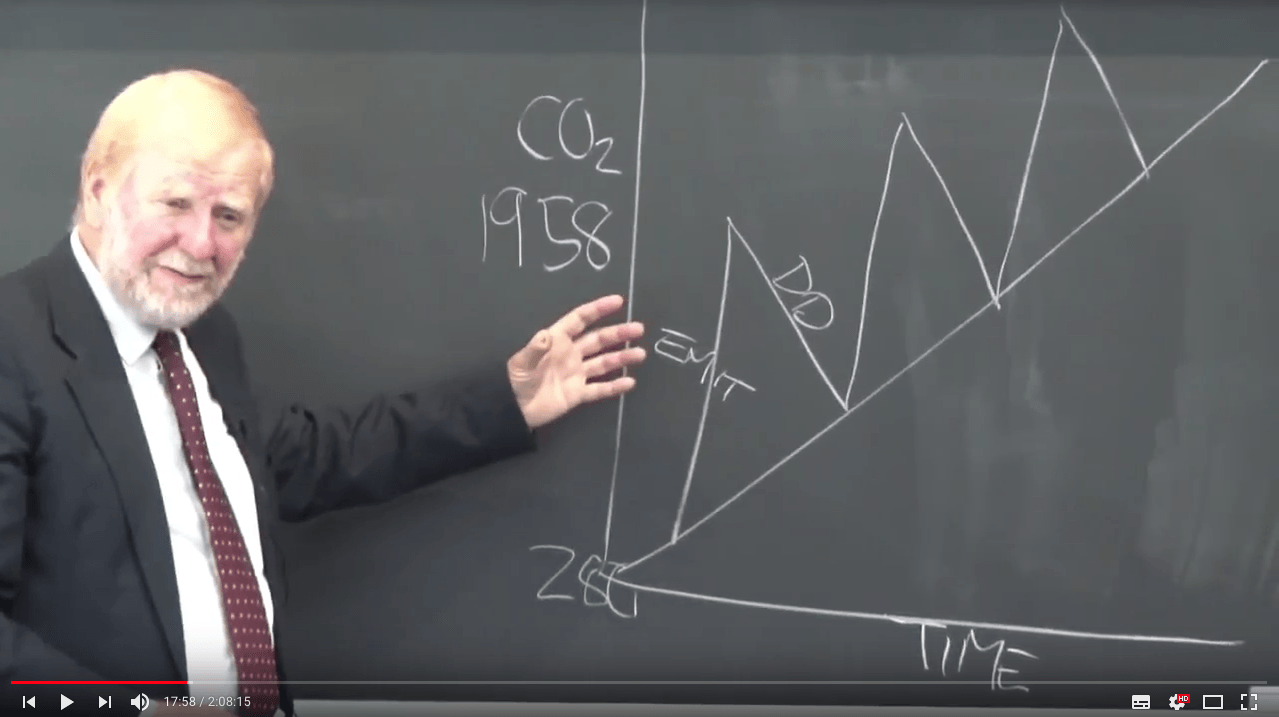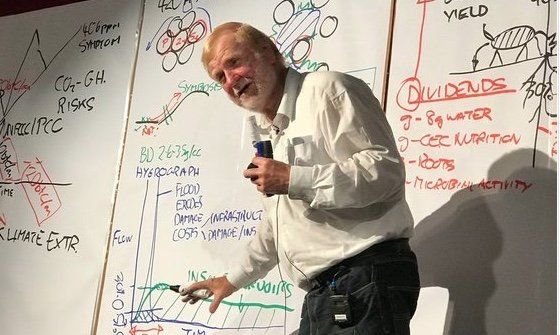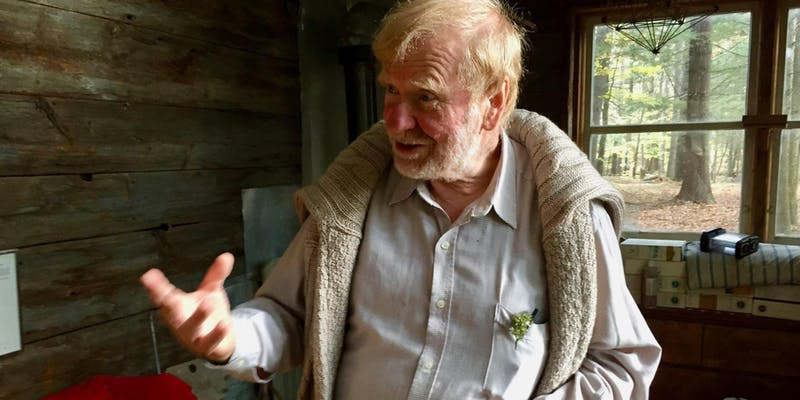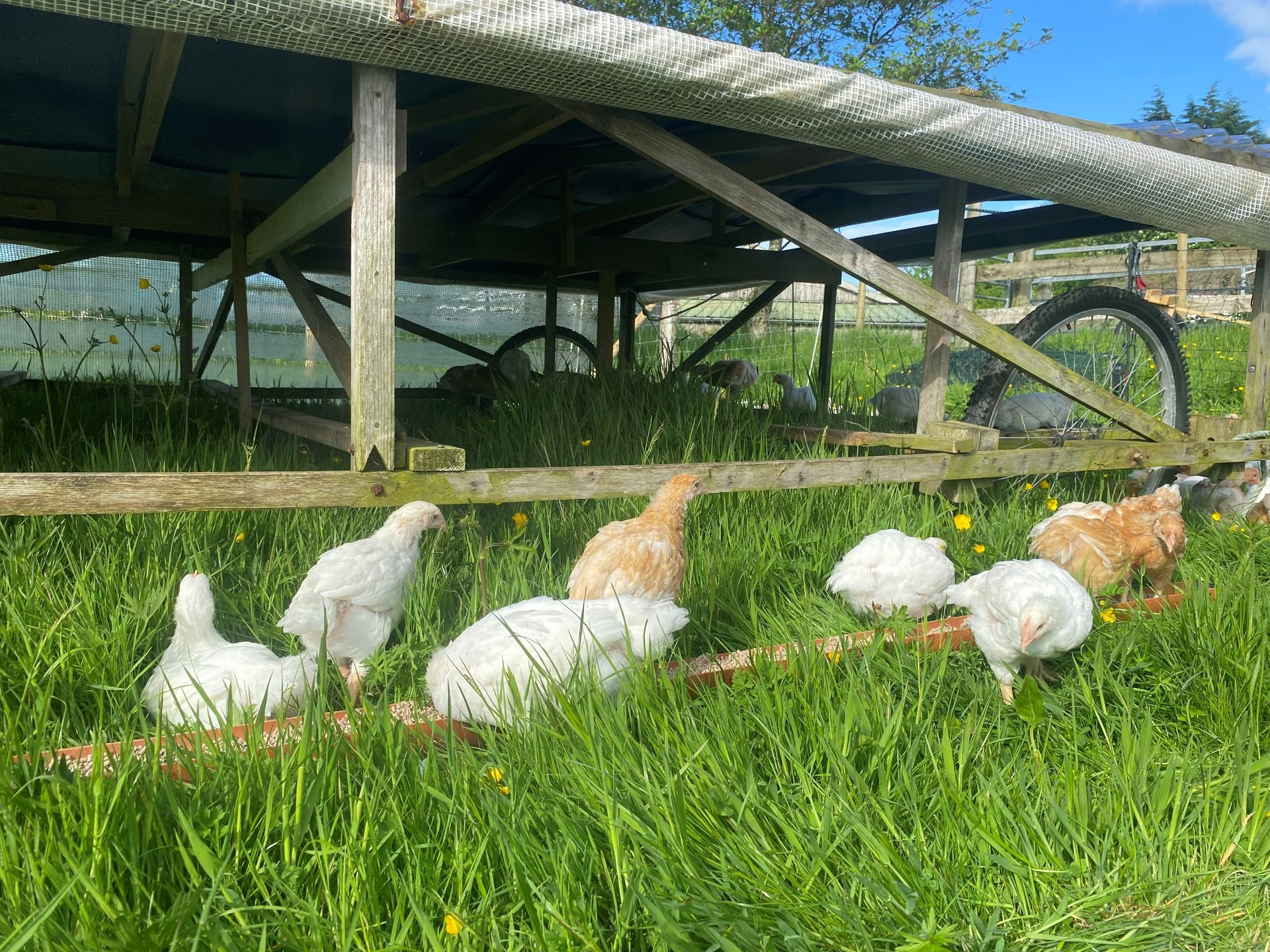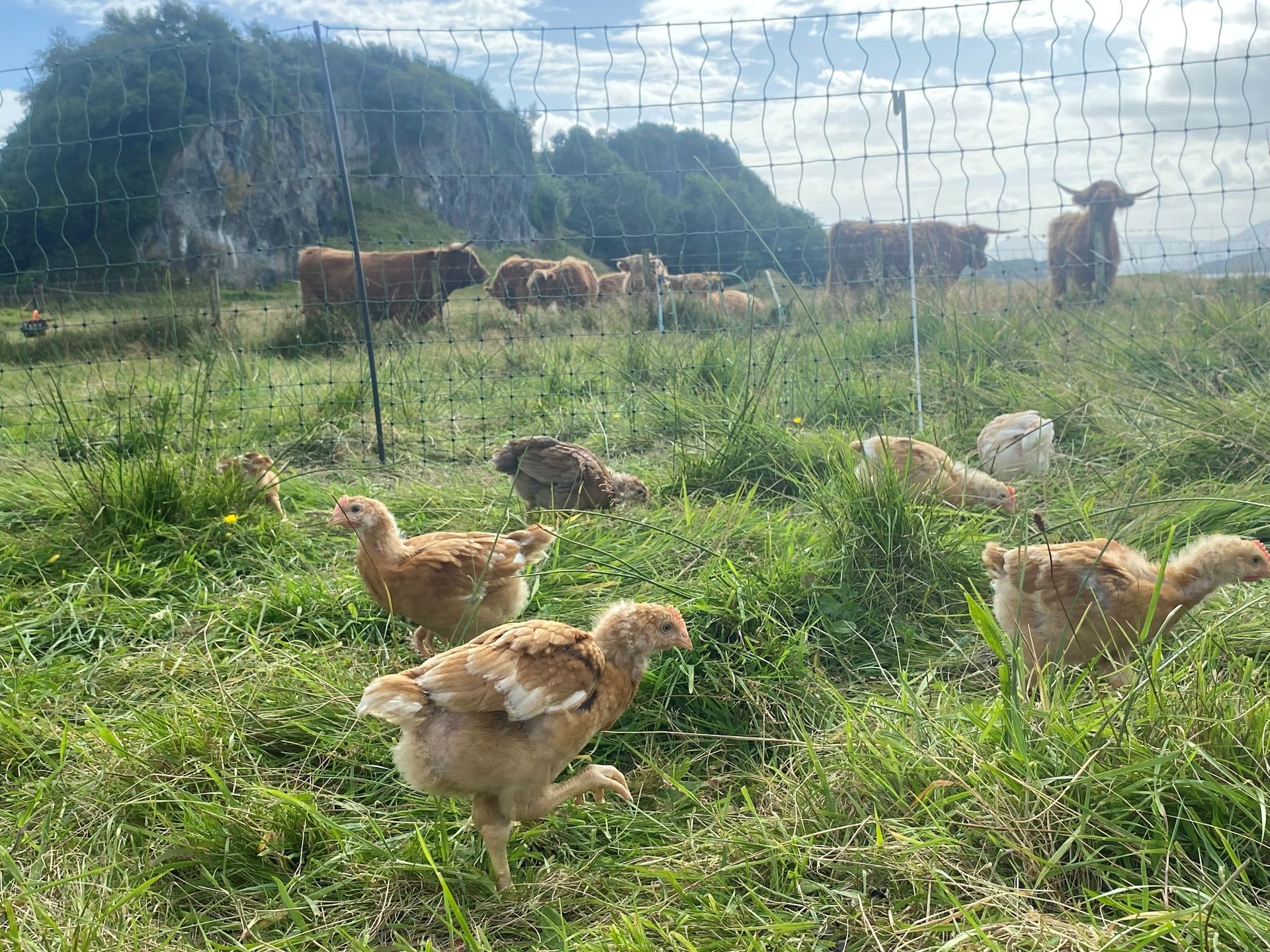Webinars & Events
WEBINAR 8th March 2025 11:00 - 12:00 GMT
Poultry in a regenerative system
With Alison & Dave Carpenter of The Sailean Project, Scotland
Zoom login details will be emailed after you register.
We’re excited to share our journey and key considerations for setting up a broiler chicken enterprise in a holistic system.
Whether you’re considering raising chickens on your own land or simply curious about regenerative farming practices, this session will provide valuable insights. We’ll spend around 40 minutes discussing our approach, the lessons we’ve learned, and the practical aspects of integrating chickens into a grazing plan, followed by 20 minutes for questions and discussion.
During the webinar, we’ll explore:
- How to integrate broiler chickens into a rotational grazing system to improve land health and food quality.
- The economic benefits of pastured poultry and how to make it financially viable.
- The practical infrastructure required, from mobile coops to processing facilities.
- Lessons learned from starting small and scaling up responsibly.
- The challenges of running a poultry enterprise in a remote location.
The way we rear our food matters—not just for the health of the animals and those who consume them, but for the land itself. At Sailean, our croft on the island of Lismore, we have embraced a regenerative approach to livestock that integrates chickens into a carefully managed, holistic system. By embedding broiler chickens into our pasture rotation, we not only produce high-quality meat but also enhance soil fertility, control pests, and contribute to the ecological balance of our croft.
Two years ago, my husband Dave and I took over the running of the Sailean Project, stewarding 31.5 hectares (just shy of 78 acres) of what is designated as ‘less favourable’ land—difficult to cultivate in conventional terms but rich with potential when approached through a holistic lens.
Our ‘flerd’ (a mixed herd of cattle and sheep) forms the backbone of our grazing system, with ten Highland cattle and ten sheep moving through the land in planned rotations. Into this system, we have incorporated chickens as a dynamic element, helping to regenerate the soil while providing nutrient-dense food, despite our topography making the classic ‘flock follows herd’ methodology unrealistic.
Last year, we raised 350 broiler chickens in two batches between mid-April and mid-September. Each flock was rotated through the accessible pastures, allowing them to forage naturally, scratch the soil, and fertilize the ground as they moved thereby contributing to a healthier, more resilient ecosystem.
The chickens thrived on a diverse diet, supplementing their feed with insects, grass, and seeds, which improved the nutritional profile of their meat—higher in omega-3s, vitamins, and minerals than conventionally farmed poultry.
By moving the chickens frequently, we reduce the issue of nutrient overload that plagues stationary systems, and by giving them greater range, they are able to live a more natural, ‘chicken-centric’ existence. Their impact on the land was restorative rather than extractive. Our aim is for healthier birds, richer pastures, and tastier, more nourishing food for our community.
Of course, there have been challenges along the way. Managing infrastructure, from mobile coops to predator deterrence, has been an ongoing learning process. The timing of rotations, balancing weather conditions, and ensuring optimal nutrition for both birds and soil have all required adaptation and careful observation. But the rewards—seeing the land come to life, producing food that aligns with our values, and knowing that each season brings deeper understanding—make the effort worthwhile.
Holistic management offers a way forward for food production that works with nature rather than against it. We hope to see you at the webinar to explore what’s possible when we rethink the way we raise our food, one flock at a time.

